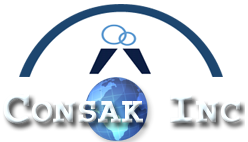(Solid foundation for thorough exam preparation with latest materials)
What is ITIL? The Information Technology Infrastructure Library (ITIL) is a customizable framework for best practice delivery and support of IT Service Management. IT Service Management addresses the business value generated by IT and focuses on the people, processes and technology issues facing organizations.
Importance of ITIL framework Organizations are increasingly dependent on IT to meet their business needs and goals. By adopting the ITIL Service Management practices, organizations can meet the increased requirements for high-quality IT service—reducing costs, improving return on investment (ROI), enhancing productivity and maintaining a consistent standard for service delivery. As the adoption and maturity of ITIL continues to grow, its value to the business also grows quickly. Corporations desperately need technology managers and staff who have greater mastery of IT management disciplines.
Who can benefit IT Project Manager, IT Service Manager, Business Analyst, Systems/Database Administrator, Developer / QA Process Manager/Specialist and any other stakeholder involved with IT services.
Course overview This course provides the fundamentals of IT Service Management (ITSM) based on 2011 updates to its version 3 known as IT Infrastructure Library (ITIL) V3. From January, 2012, ITIL is now referred to as ITIL 2011 or simply ITIL. It describes the key concepts, processes, functions and roles of the ITIL service lifecycle. The course prepares attendees for the necessary information to successfully complete the certification exam.
Course Benefits The IT Infrastructure Library (ITIL) course is based on ITIL 2011, which is the most current version of ITIL after V3., explaining the differences from V3 for giving a better insight to the ITIL evolution. It highlights how the ITIL’s widely adopted best practice framework are most useful for IT Services management. Having achieved the Foundation Certification represents clear demonstration that you can contribute to improving the maturity of an IT organization. This course will offer you:
* Student Package (ITIL Acronyms and glossary, ITIL Certificate Syllabus, ITIL Qualifications Scheme, Exam guide and more…) * Course Presentation * Case Study * Mock Exam (Questions and Answers)
Prerequisites There are no prerequisites for this course.
Audience Those who want to achieve ITIL Foundation Certification. All IT Staff, consultants, system and network administrators, managers and executives who are responsible for the delivery of IT services in an organization, and business managers who interface regularly with IT.
Course Outline
Part 1: Introduction
* Introduction to ITIL * Service Management as a Practice * The Service Lifecycle
Part 2: Service Strategy
* Functions and Processes in Service Strategy * Financial Management * Service Portfolio Management (SPM)(With added outputs of Service Charter and Model) * Demand Management(With added output of PBA) * Business Relationship Management (New role of Business Relationship manager introduced) * Cloud computing * Strategy Management (New role of Service Strategy Manager introduced and Customer portfolio & Desired Service Outcomes added as outputs)
Part 3: Service Design
* Functions and Processes in Service Design * Service Catalogue Management * Service Level Management and Risk Management * Capacity and Availability Management (with added outputs of Event Filtering & Correlation Rules); * IT Service Continuity Management * Information Security Management (with added outputs of Event Filtering & Correlation Rules) * Supplier Management (Supplier & Contract database changed to Supplier & Contract MIS) * Transition of a Service * Design Cordination Process (Service Design policy introduced) * Service Catalog Terminology
Part 4: Service Transition
* Functions and Processes in Service Transition (Now involves Design Coordination and Release Planning) * Project Management (Transition Planning and Support) * Change Management * Service Asset and Configuration Management * Release and Deployment Management * Service Validation and Testing(Interfaces added with Project Management) * Change Evaluation Process * Change Process Model * Change Proposal (with added subprocesses of Assessment of Change Proposals & Minor Change Deployment * Knowledge Management & Application Development
Part 5: Service Operation
* Functions and Processes in Service Operation * Service Desk * Technical Management * Applications Management * IT Operations Control and Facilities Management * Event and Incident Management (Event management updated to reflect concepts of 1st and 2nd level Correlation. For Incident management Incident Prioritization Guideline added) * Request Fulfillment (Revised to now consist of 5 sub processes: Request Fulfillment Support;Request Logging & Categorization;Request Model Execution;Request Monitoring &Escalation;Request Closure & Evaluation) * Third Party Support * Problem Management(with new sub process of Proactive Problem Identification) and Access Management (Interface with Event Management added)
Part 6: Continuous Service Improvement
* Functions and Processes in Service Operation * The 7 step Improvement Approach * CSI Register (Earlier referred as SIP) * Service Measurement and Service Reporting
Part 7: Review and Mock Exam
Schedule : Flexible scheduling
Online Learning : Distance learning option is also available through remote interactive training
Duration : 3 sessions of 3-4 hours each
Cost : $2000
